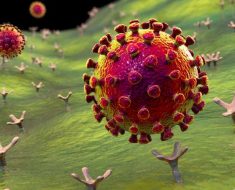While anyone can develop a substance use disorder, some personal and medical factors can increase the risk of dependence.
The most obvious risk factor is taking an illicit or mood-altering substance, but a complex web of risk factors can contribute to addiction. Many substances that form the basis of addiction are not chemically addictive. This means that other elements can lead to substance use disorders.
Risk factors

The following can increase the risk of addiction.
Family history: A person’s genes play an important role in addiction and might account for 40-60 percent of addiction risk. Researchers are exploring the relationship between genetics and addiction.
Family life: A healthy home environment during childhood is essential for reducing the risk of addiction later. Being around authority figures and family members who use drugs can increase the likelihood of developing a substance use disorder later in life.
Peers and school life: The increasing influences of friends and peers throughout a person’s teenage years can have a significant impact on whether or not they use drugs.
Many people without other risk factors try drugs for the first time to connect with a peer group. Children and teenagers who are struggling with schoolwork or feeling excluded socially may face a higher risk of trying drugs and developing a substance use disorder.

Feeling good: Many substances produce euphoria, an intense physical sensation or experience, or a stimulant effect that provides feelings of confidence and power.
Many of the behaviors that might become addictive may also provide mood-enhancing effects, such as sexual pleasure or financial gains from gambling. Even receiving a notification or message on social media can release a burst of feel-good chemicals in the brain, fuelling addiction-like symptoms around smartphone use.
Relieving sadness or stress: People who experience depression, social anxiety, and stress may use substances or behaviors as a coping mechanism. Stressful situations may also motivate people to continue using substances and may also lead to relapses into drug use, even after receiving successful treatment for addiction.
To enhance performance: Some people take stimulants to improve sporting, academic, creative, and professional achievement. While this might show short-term gains, the risks are far higher in the long run.
In circumstances where a governing body monitors for performance-enhancing drugs, such as in competitive sports, using such substances can lead to a lifetime ban from competing in the sport, for example.
Curiosity: Teenagers will often try a substance just because they have never tried it before. The part of the brain responsible for decision-making is still developing during a person’s teenage years, so young people are even more at risk of folding to peer pressure.

Takeaway
Any combination of risk factors can contribute to addiction. Sometimes, substance or behavior dependence does not require any risk factors at all to develop.
Family history and home environment contribute heavily to a person’s use of a substance.
How a person consumes a drug, and the type of substance they use can also increase the likelihood of addiction. Stress and existing mood disorders can lead a person to try different substances to “lift” their mood, which in turn can lead to addiction.
People take substances to feel happier, relieve sadness, temporarily enhance performance, or just through curiosity. However, this can increase the risk of a person developing a substance use disorder.
Q:
I am starting to find myself consuming more substances more regularly than before. How do I motivate myself to reduce intake?
A:
The most important thing is that you have recognized that you are using more of the substance. At this point, it is necessary to abstain from the substance altogether.
Get rid of any of the substance you have at home, and change your routine to prevent you from going near people, places, or things that you associate with the substance.
If you find that you are having trouble with the cravings, try talking to your family doctor.
Source: Read Full Article





